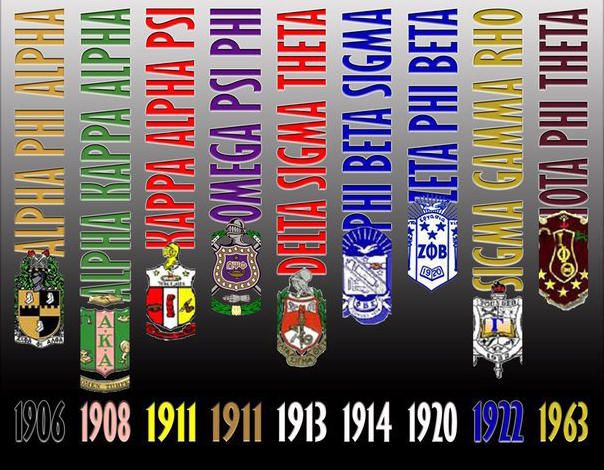Black Greek life subverts white supremacy, strives for academic excellence
While Greek life at Tulane attracts masses of people each year, there are criticisms about the lack of diversity seen in these spaces. There is another faction of Greek life, however, that looks to center itself around the black students at Tulane.
Tulane has three active National Panhellenic Council organizations that were created for the purpose of giving black individuals a space in greek life: Alpha Phi Alpha Fraternity, Inc.; Delta Sigma Theta Sorority, Inc; and Alpha Kappa Alpha Sorority Inc.
At the time of the three organizations’ creation, Greek life was segregated and did not allow black students within Panhellenic groups. Many of these organizations were created around the civil rights era when black students were already feeling discrimination and marginalization in academics and saw the need for a positive community in a predominantly white space.
“Our chapter, the Rho Iota chapter … was founded in 1989, and at that time, when the idea was proposed to the administration, the brothers in our graduate chapter who were doing the proposal were told that there would never be a black fraternity at Tulane in 1989,” Tulane APA President Barry McGuire said.
The Black Greek Lettered Organizations (BGLOs) stress the historical significance behind these organizations.
“The history is always important and in any [National Pan-Hellenic Council organization] the history of that fraternity or sorority is … something that we keep tight to our chest,” McGuire said. “Any NPHC member you meet, if you were to ask them about their founders, where they were from, what their history is, they can tell you a little something.”
The historical stress is not the only thing that differs between these groups and the other Pan-Hellenic organizations.
“The most obvious difference is our recruitment processes, since we don’t participate in formal recruitment,” Alex Williams, Community Service Chair of Nu Mu Citywide Chapter of Delta Sigma Theta Sorority, Inc., said. “We also use a lot of unique terminology, such as line brothers/sisters to refer to the group of men or women you’re initiated with.”
BGLOs do workshops, programming, community service and other events. Delta Sigma Theta, for example, organized programming including “The Importance of Black Owned Businesses,” voter registration drives, “DSTurbed by Sexual Assault”, and “Beyond the Red Ribbon,” and participated in various national youth initiatives.
The community of the BGLOs focuses itself on black students, but is inclusive of those of all races. Historically, many of the NPHCs integrated other races before the Pan-Hellenic groups included non-whites.
“They were created out of necessity because black students were not allowed to join the Greek organizations that existed in the early 20th century, so it wasn’t a method of exclusion, rather the creation of spaces where we could focus on issues specific to our community,” Williams said. “But all of our organizations have non-black members.”
While the groups are inclusive of other races, there is still a racial identity and emphasis on that in these organizations.
“Speaking specifically for my organization, part of our mission states that we have a ‘primary focus on the black community,’ and anyone who joins one of these organizations would need to respect that we center blackness in everything we do,” Williams said.
Many members of BGLOs believe the racial identity and focus on black students remain as necessary as they were during its creation.
“It’s definitely very important to us the reason why it exists still now is that there’s still work to be done,” McGuire said. “There is still the necessity to say that this group of educated black people have this opinion and are doing this work and can show that this is still possible.”
After graduation, there is an active community that still involves itself in the organizations as brothers and sisters.
“With NPHC, it’s never past tense. You’re a member for life with our graduate chapters and everything else they are constantly going out and doing this work … and that is kind of the core focus of a lot of the NPHC organizations,” McGuire said. “That kind of community means I am able to interact with people who are far my seniors as equals like as brothers and I really appreciate that sense of community.”
Your donation will support the student journalists of Tulane University. Your contribution will allow us to purchase equipment and cover our annual website hosting costs.




